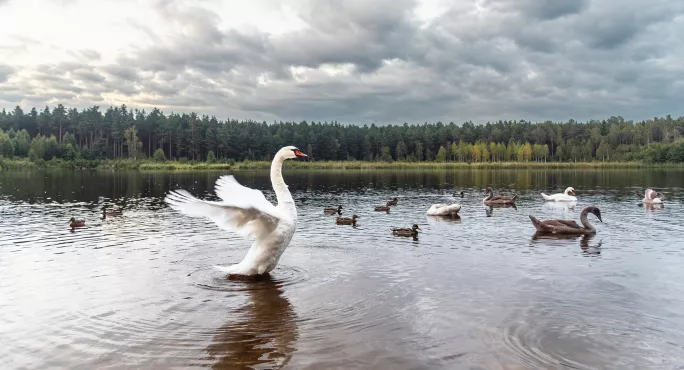How we’re turning students into teachers
Share
How we’re turning students into teachers
Recruitment challenges continue to persist - so how can we get ahead of the game as much as possible?
One key tactic we are exploring more is building a talent pipeline of teachers not just before they enter the profession, but even before they finish school.
This is something we had already been doing for a number of years but are now taking a more co-ordinated, strategic approach to with our Aspiring Educators programme that is now designed to give our sixth-form students at Windsor High School and Sixth Form more practical insights into a teaching career.
Theory and practice
This is based around a bespoke programme that allows them to learn about educational theory and processes within their own school, and access work experience placements within our local trust schools. The programme was initially a theory-based opportunity but was developed to incorporate a greater focus on the practical aspects of teaching.
The theory aspect is taught in the classroom before embarking on work experience. Students explore the qualities and role of a teacher, develop presentation skills and research education systems around the world in comparison to the English education system.
Students also explore a range of teaching and learning strategies with a focus on active observation and ‘Teach Like a Champion’ strategies.
Work experience
Then we provide students with the opportunity to take part in work experience in our primary schools, supplemented by practical instruction from our secondary team when back in class.
Students undertake a block work experience placement in one of our primary schools over a four-week period and log these experience placements to the tracker.
We request that they wear smart business dress to really ‘feel’ the part of teacher but ensure they wear their student lanyards so they can be identified easily.
Our Aspiring Educators co-ordinator, Jatinder Dhanoya, also keeps in regular contact with the schools to ensure safeguarding measures are effective.
Students can work with any number of ages in the school, or request a certain year group if they have a preference.
Once that first placement concludes, students return to the classroom and complete a reflection about their experience. They then go on another four-week placement at a different school and the process is repeated.
When not undertaking work experience, students have an enrichment session in the classroom. This gives the students opportunities to hear from teachers and guest speakers through taught lectures. For example, this past term, the SEND team explained the role of the SENCO and students had a session on the use of digital devices in teaching.
Offering this has proved very popular with 15 students in the programme at the moment - double last year’s numbers. This success means we are looking at how to roll this out in our other sixth form in the trust as well.
University connections
We are also further building on our offer by nurturing former students’ interest while they are studying at university.
We encourage them to take up the paid internship opportunities we offer for undergraduates in the first year of their degree, funded by the Department for Education internship programme for shortage subjects.
And this year, for the first time, we will be supplementing this with our own offer of paid internships for those in their second year.
Once they reach year three, we will support them to apply to train to teach with us, if this is something they wish to pursue. This way we can keep our aspiring educators as part of our Windsor Academy Trust family.
Early impact
It’s still early days for the programme, but we have already secured 11 interns since first offering this opportunity and generated huge interest this year, receiving more than 40 applications for internships to take place this summer.
One of our maths interns from last year came back to train to teach with us this year and has already secured a job with us in the first term of their training programme. And seven of our current trainees are our former students.
We also do similar things for students who may be interested in non-teaching roles by making sure career fairs include not just teaching but non-teaching pathways as well, such as through apprenticeships in HR, finance or IT.
Ultimately if we can raise awareness so young people consider a career in education, wherever they end up teaching, it is a hugely worthwhile endeavour.
But if we can do this in a way that means they first actively engage with teaching in our schools, and then potentially come to work for us and educate the next generation of children, then that is something very special indeed.
Leyla Palmer is head of professional learning and talent at Windsor Academy Trust
For key school and trust leadership insights delivered every month, sign up for the Tes Leaders’ Briefing newsletter




